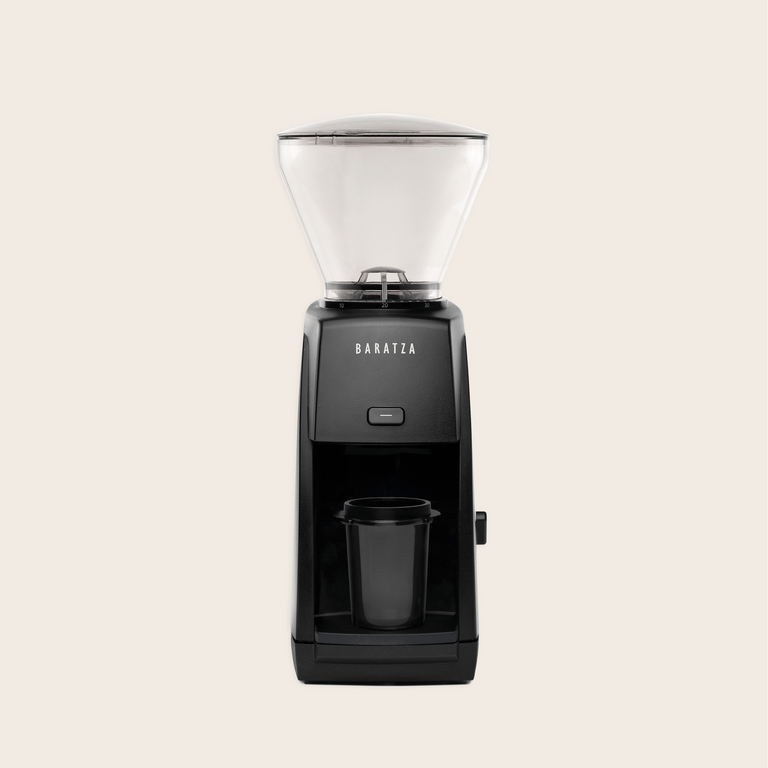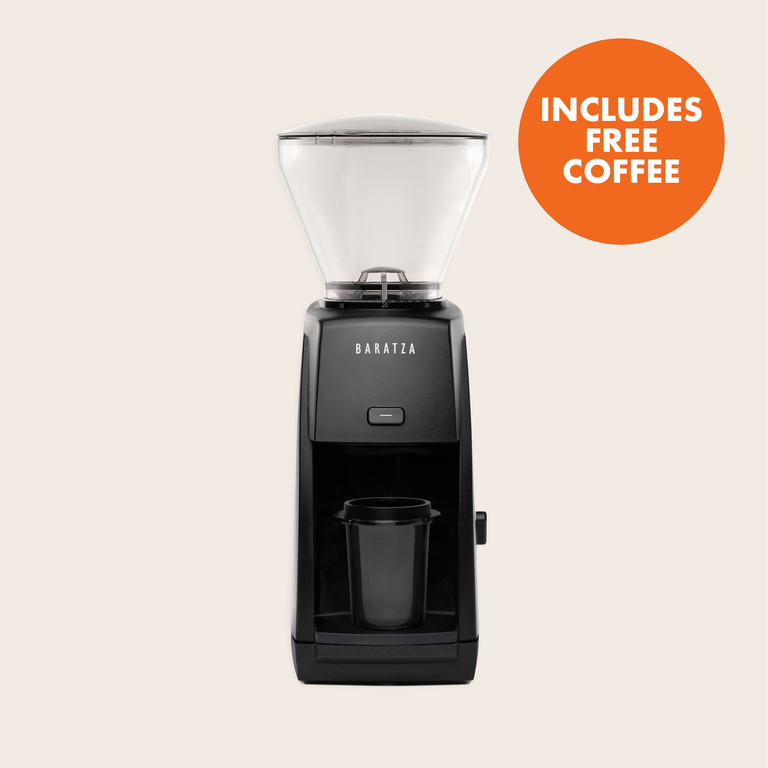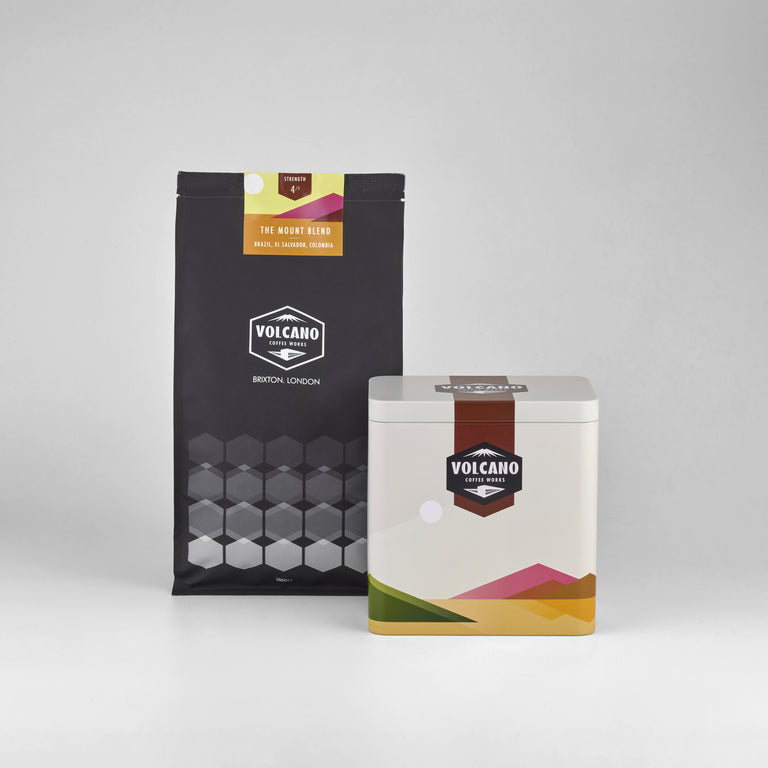We usually talk about coffee in terms of taste, sourcing, or the simple joy of your morning cup and its positive impact in the world. But coffee isn’t just great tasting fuel. It’s actually one of the most studied drinks on the planet, and the science proves that it does a lot more for your body than keep you awake. The health benefits are real, significant, and backed up by decades of research. It’s time to see your flat white in a different light.
Shop our latest coffees.
1. Coffee boosts performance and strength
Coffee isn’t just mental fuel. It’s physical too. A systematic review in 2019 looked at caffeine and performance across dozens of studies and found it consistently boosted muscle strength, endurance, and output. In short, coffee makes you stronger and helps you go further. This explains why athletes swear by it and probably goes someway to explaining the synergy between coffee and cycling cultures.

2. Coffee supports your gut microbiome
Recent research shows coffee has a positive effect on gut health. Moderate consumption (under 4 cups a day) increases beneficial bacteria like Bifidobacteria, boosts microbial diversity, and even supports species that produce anti-inflammatory compounds such as butyrate. These shifts suggest coffee acts a lot like a natural prebiotic, improving digestion, resilience, and overall gut balance. Both regular and decaf coffee appear to have these benefits.

3. Coffee protects your health with antioxidants
Coffee is loaded with polyphenols and chlorogenic acids i.e the compounds that act as antioxidants to support immunity, healthy ageing and anti-inflammation against other things. A 2005 U.S. analysis showed coffee outpaced fruit and veg as the biggest source of antioxidants in the Western diet. Later research (2014) backed it up, proving just how fundamental coffee is to protecting cells against oxidative stress.

4. Coffee lowers the risk of heart and liver disease
Forget the old myths that coffee is “bad for your heart.” A 2014 paper confirmed that drinking 3–5 cups a day is linked to lower risk of heart disease. And on top of that, a 2017 study showed the same amount of coffee cuts the risk of liver cirrhosis. So that’s good news for at least two of your most important organs.

5. Coffee lowers risk of dementia
It’s not just about the short-term buzz. A 2010 review of studies found that regular caffeine intake was linked to a reduced risk of dementia, including Alzheimer’s. A 2016 follow-up reinforced the link, showing coffee’s neuroprotective effects on the brain. Put simply: your daily cup today could be protecting your memory tomorrow.

6. Coffee reduces risk of Parkinson’s disease
Another one most people don’t know. Caffeine has a protective effect against Parkinson’s disease, supported by long-term observational studies dating back to the 1990s and confirmed in later reviews. Fewer tremors, stronger motor control, lower risk overall. All from coffee.

7. Coffee drinkers live longer
Sounds dramatic, but it’s true. Massive population studies in the U.S. (2012) and the UK Biobank (2018) tracked hundreds of thousands of people and found the same result: regular coffee drinkers had a lower risk of dying early from any cause. That includes cancer, heart disease and stroke. Not bad from something most of us already see as a treat?

The bottom line
We’ve been trained to think of coffee as either a guilty pleasure or just a caffeine kick. But the truth is, coffee is one of the most powerful health foods in the Western diet. From heart and liver protection to sharper brains and longer lives, the science stacks up. Next time someone says coffee is just a habit, you know the truth: it’s one of the most underrated and easily accessed health allies you’ve got.
References
1. Performance & Strength
· Grgic, J., Trexler, E.T., Lazinica, B. & Pedisic, Z. (2019). Effects of caffeine intake on muscle strength and power: a systematic review and meta-analysis. British Journal of Sports Medicine, 54(13), 681–688.
· Spriet, L.L. (2014). Exercise and sport performance with low doses of caffeine. Sports Medicine, 44(2), 175–184.
2. Microbiome Healthy
· Kim, Y., Keogh, J.B., Clifton, P.M. (2019). Effects of coffee consumption on gut microbiota: A systematic review. Nutrients, 11(10), 2401. https://doi.org/10.3390/nu11102401
3. Antioxidants
· Crozier, T.W.M., Stalmach, A., Lean, M.E.J. & Crozier, A. (2009). Espresso coffees, caffeine and chlorogenic acid intake: Potential health implications. Food & Function, 1(1), 73–77.
· Vinson, J.A., et al. (2005). [Study often cited via media reports: Coffee as the number one source of antioxidants in the U.S. diet].
4. Heart & Liver Disease
· Ding, M., Bhupathiraju, S.N., Satija, A., van Dam, R.M. & Hu, F.B. (2014). Long-term coffee consumption and risk of cardiovascular disease: A systematic review and dose–response meta-analysis of prospective cohort studies. Circulation, 129(6), 643–659.
· Kennedy, O.J., Roderick, P., Buchanan, R. & Parkes, J. (2017). Systematic review with meta-analysis: Coffee consumption and the risk of cirrhosis. Alimentary Pharmacology & Therapeutics, 45(5), 588–599.
5. Dementia
· Santos, C., Costa, J., Santos, J., Vaz-Carneiro, A. & Lunet, N. (2010). Caffeine intake and dementia: Systematic review and meta-analysis. Journal of Alzheimer’s Disease, 20(s1), S187–S204.
· Nehlig, A. (2016). Effects of coffee/caffeine on brain health and disease: What should I tell my patients? Practical Neurology, 16(2), 89–95.
6. Parkinson’s Disease
· Nehlig, A. (2016). Effects of coffee/caffeine on brain health and disease: What should I tell my patients? Practical Neurology, 16(2), 89–95.
· (Also supported by multiple long-term observational studies from the 1990s onwards, frequently cited in reviews such as Santos et al. 2010.)
7. Longevity
· Freedman, N.D., Park, Y., Abnet, C.C., Hollenbeck, A.R. & Sinha, R. (2012). Association of coffee drinking with total and cause-specific mortality. New England Journal of Medicine, 366(20), 1891–1904.
· Loftfield, L., Cornelis, M.C., Caporaso, N., Yu, K., Sinha, R. & Freedman, N.D. (2018). Association of coffee drinking with mortality by genetic variation in caffeine metabolism: Findings from the UK Biobank. JAMA Internal Medicine, 178(8), 1086–1097.





















